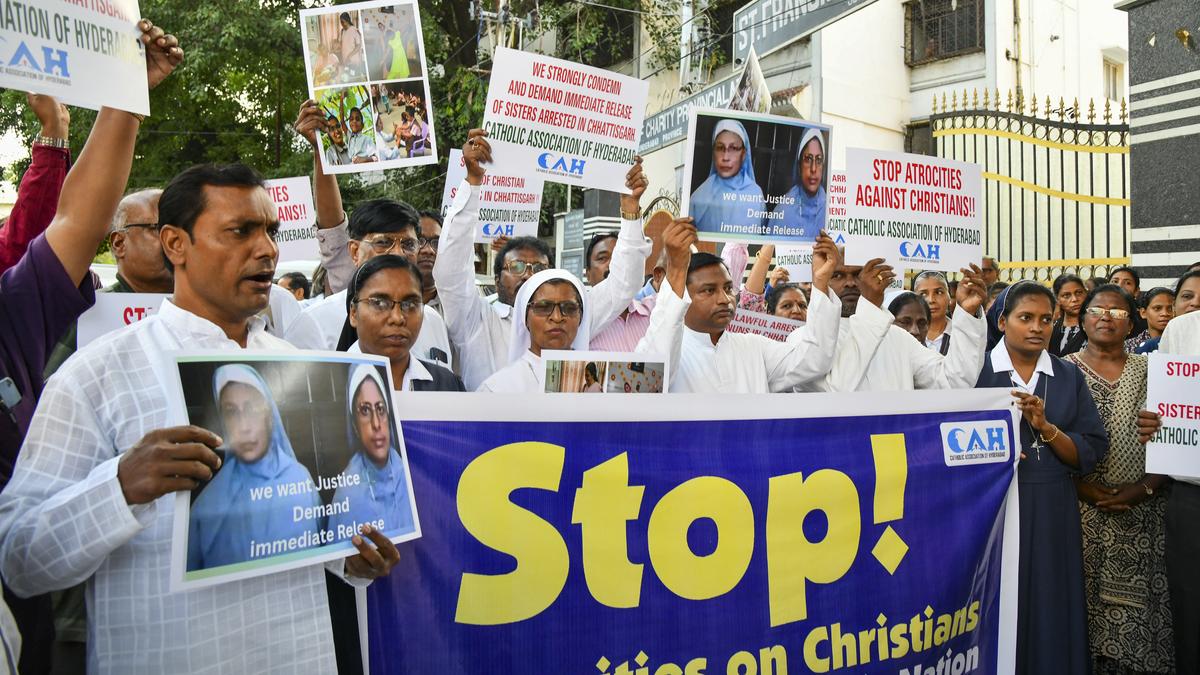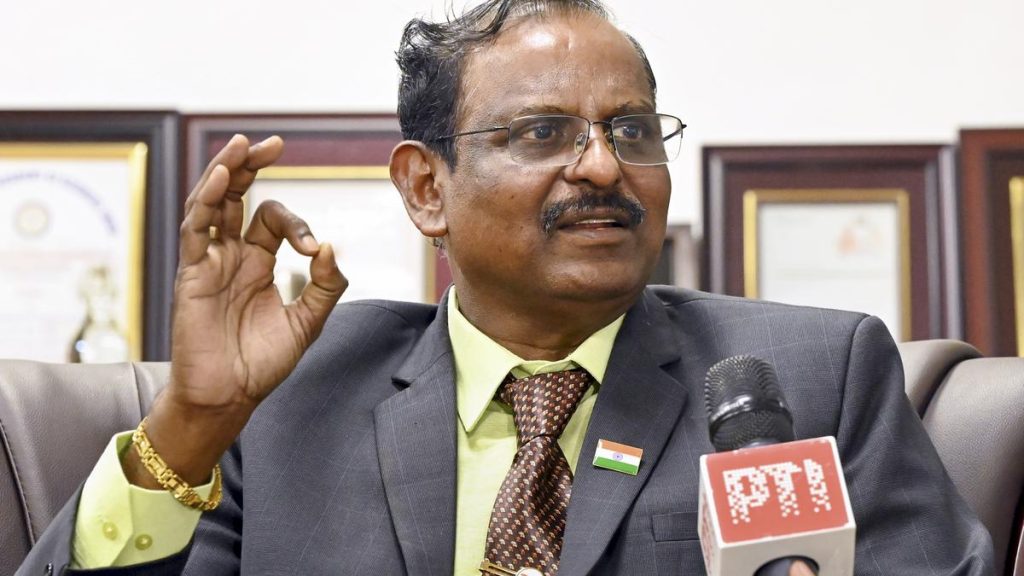Now Reading: Chhattisgarh Court Reserves Decision on Bail for Kerala Nuns
-
01
Chhattisgarh Court Reserves Decision on Bail for Kerala Nuns
Chhattisgarh Court Reserves Decision on Bail for Kerala Nuns

Rapid Summary
- A special NIA court in Bilaspur, Chhattisgarh has reserved its order on the bail request of three persons, including two nuns from Kerala, arrested on charges of human trafficking and forced religious conversion.
- The arrest took place at Durg railway station on July 25 following a complaint by a Bajrang Dal functionary regarding the alleged forced conversion and trafficking of three girls from Narayanpur.
- Prosecutor Dauram Chandravanshi stated that the case is in its early inquiry stages and opposed the bail plea.
- Defence lawyer amrito Das argued that custody for interrogation was not sought and stated that all three allegedly trafficked women are adults who were already Christians prior. Parents of these women have also denied any coercion or fraud in their statements to police.
- Political opposition raised concerns about the arrests in Parliament earlier this week, with an AICC delegation arriving from Kerala to meet the accused nuns on August 1.
- Delegation members alleged conspiracy behind referring the case to an NIA court.
Indian opinion Analysis
The ongoing legal proceedings highlight tensions surrounding allegations of human trafficking and religious conversions, which remain sensitive subjects within India. the involvement of organizations like Bajrang Dal as complainants puts local socio-political dynamics into play. While defence arguments point towards procedural inconsistencies (such as lack of interrogation custody), prosecution’s insistence on further investigation underscores complexities typically associated with such cases.The referral to an NIA court has drawn criticism linking it to possible delays in securing bail-a claim that adds political friction amidst broader debates over religious freedoms. Whatever be the outcome, this incident signals continued scrutiny over interfaith relations alongside judicial examination into allegations involving personal liberties versus lawful conduct. It reinforces india’s balancing act between ensuring individual rights while addressing community grievances persisting across states.
Read More: Source Link























